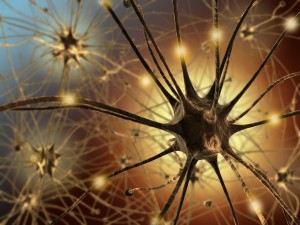 Neuro-degenerative diseases (NDD’s) affect lives on a daily basis. These diseases are not geographically confined and their adverse effects on the human body have been, up to now, essentially irreversible. However, some significant progress may have been made towards fighting NDD’s by our own home grown South African scientists.
Neuro-degenerative diseases (NDD’s) affect lives on a daily basis. These diseases are not geographically confined and their adverse effects on the human body have been, up to now, essentially irreversible. However, some significant progress may have been made towards fighting NDD’s by our own home grown South African scientists.
Neurons are the building blocks of the nervous system and the nervous system includes the brain and spinal cord. The progressive loss of structure or impaired function and death of neurons results in neuro-degenerative diseases which include Parkinson’s, Alzheimer’s, dementia and motor neuron disease.
Neurodegenerative diseases affect specific parts and functional systems of the nervous system and gradually progress over many years. Alzheimer’s disease is the most common neurodegenerative disease, followed by Parkinson’s disease.
South Africa has a low frequency of these diseases although they have been on the increase in recent years.
Two esteemed University of the Witwatersrand (Wits) researchers are using nanotechnology to improve drug delivery for patients suffering from these neuro-degenerative illnesses.
In 2015 Prof Viness Pillay, a pharmaceutical scientist and specialist in nanomedicine, and Prof Girish Modi, a neurologist and Chief Specialist of Neurology at Wits University, essentially combined their expertise to create a scientific programme they believe will accelerate the pace of research and offer a functional and lasting solution to effectively treating neuro-degenerative conditions.
Prof Pillay is a specialist and Director in the Advanced Drug Delivery Platform (WADDP), the African Network for Drugs and Diagnostics Innovation (ANDI), Centre of Excellence in “Advanced Drug Delivery Technology’ as well as a South African DST/NRF SARChI Research Chair in ‘Pharmaceutical Biomaterials and Polymer-Engineered Drug Delivery Technologies’.
“My wider research focus in nanotechnology is the application of nanovectors in the design of novel drug delivery technologies that have scope for commercialisation,” he explained.
“10% of people over 65 suffer from Alzheimer’s and, at present, approximately 40 million people are suffering from the disease today. This figure might soar to 75 million people by 2030 and 140 million by 2050 if left unchecked,” stated Modi.
There is no known cause for neuro-degenerative diseases. Research has pointed out that age, the polluted environment, gene mutations, oxidative stress and, at times, genetics accelerate and contribute to the onset of these diseases.
Various cures have been tested but the two researchers pointed out that the main challenge has been getting drugs across the blood-brain barrier, a cluster of vessels centred around the brain, which the researchers believe they can temporarily disrupt.
The current drugs on the market cannot deliver the drugs to the specific areas they are needed. As a result patients constantly suffer severe life threatening side effects.
“Once drug molecules are in the brain, we can’t have them indiscriminately floating around otherwise it will cause chaos. Ultimately we need the drug molecules to get to the specific biomarkers and neurons. Drugs will be attached to nanoparticles, which should be able to seek out specific targets,” Pillay explained.
The nanoparticles can be injected, placed surgically or administered orally. Essentially the two researchers are trying to improve conventional treatments by adding the nano element and strength to the somewhat complex equation.
The loss of dopamine in the brain caused by Parkinson’s is not significantly improved by current drug therapy because the degradation of drugs by the liver and the blood-brain barrier prevent most drugs from reaching the brain. Parkinson’s disease is primarily caused by low and falling dopamine level in an area of the brain called the substantia nigra. Dopamine is needed in that part of the brain to control movement and coordination.
“Our drug delivery will take dopamine to deficient places and get nerve cells working again. Almost $100-million is spent every year on Alzheimer’s research in the US and yet unfortunately there have been no ground-breaking discoveries,” the researchers said.
Research is almost over the pre-clinical stages, which precede phase 1 trials. The two scientists started working on the complex topic in 2008 and have published over 40 papers on the subject to date. 2016 will be a year of progress for the two researchers as they will be pushing the research to the next phase.
Modi believes this research and ultimately their efforts have the capability to change the set pattern of curing neuro-degenerative disorders. “Instead of drugs in capsules, we will have drugs delivered through nanotechnology for neurotherapy; this will be more effective and is definitely the future.”
Their efforts will likely put South Africa on the map once again for ground-breaking work in the health sector through neurology and nanotechnology.
